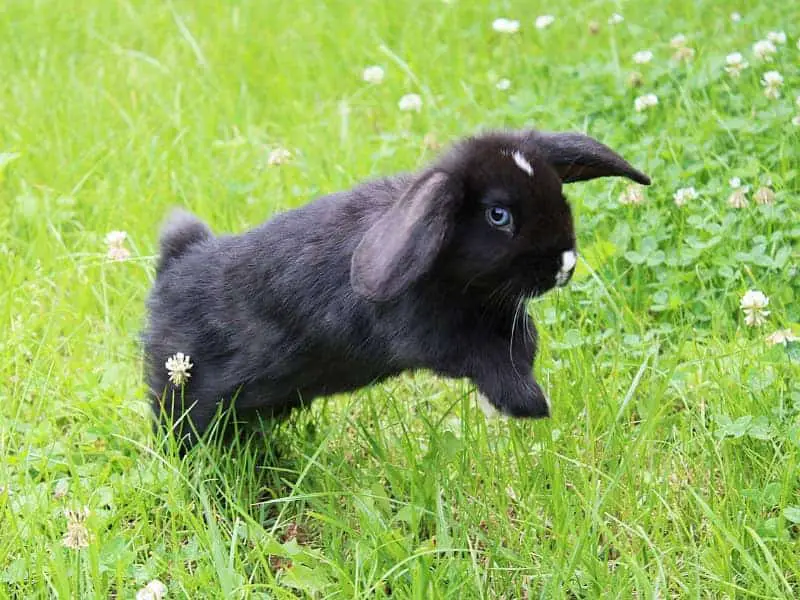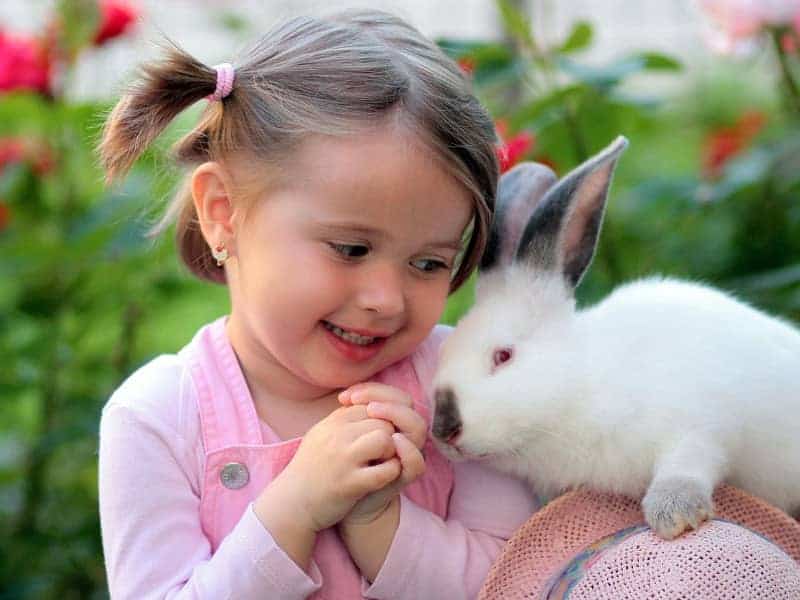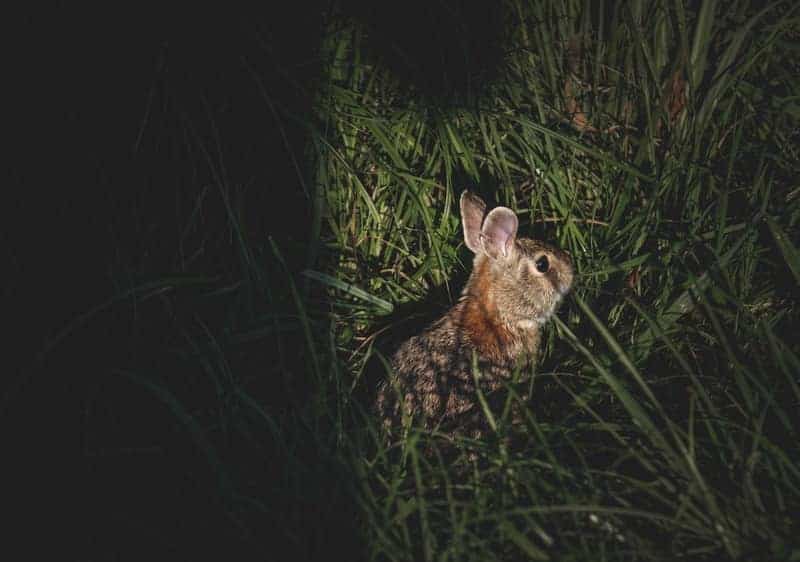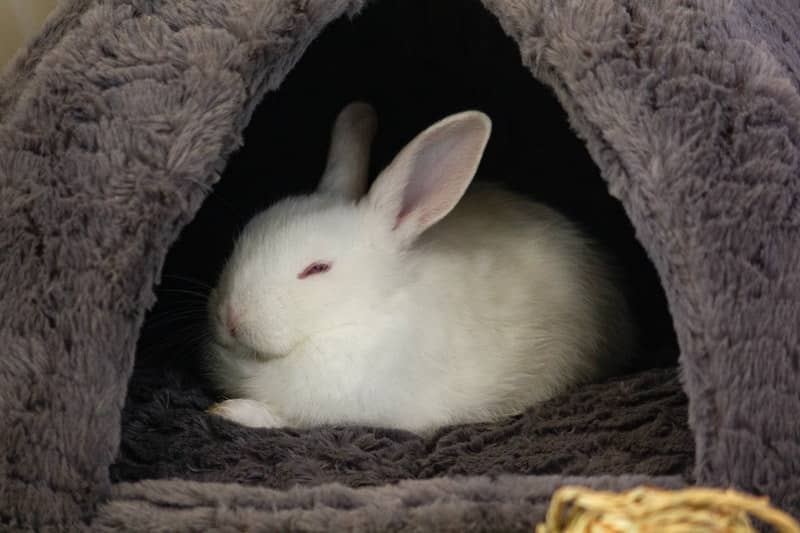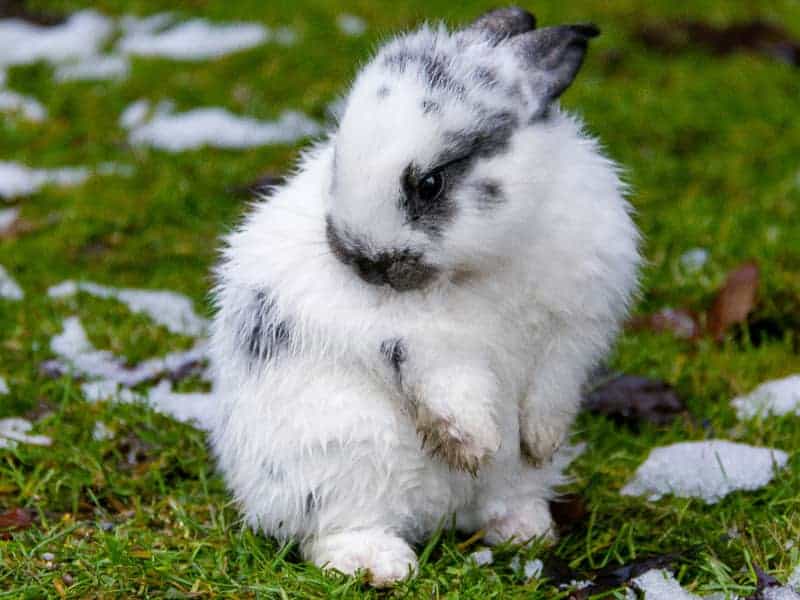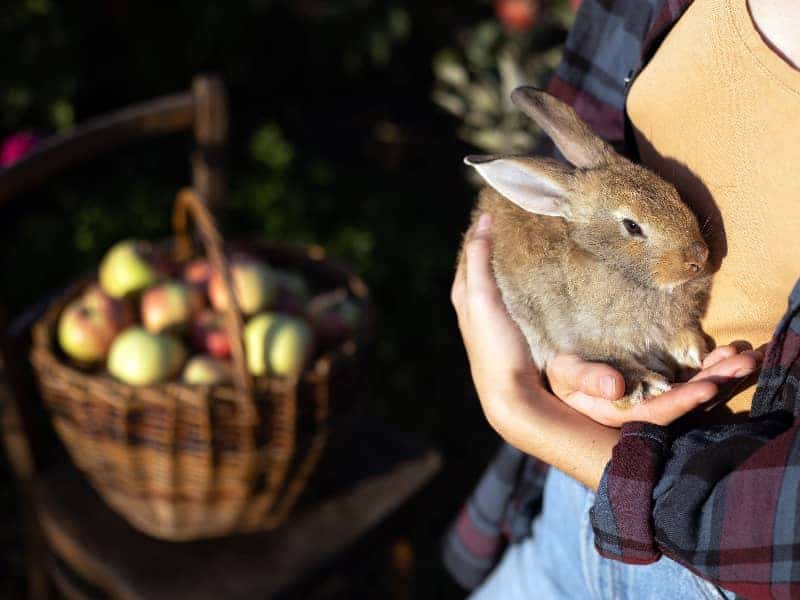
The basics of keeping rabbits: a guide for beginners
Welcome to the world of rabbit keeping! If you've just embarked on the journey of bringing a furry friend into your life, you've come to the right place. Let's discover the basics of rabbit husbandry together.
Choosing the right rabbit
Before you plunge headlong into the world of rabbits, it's worth thinking a little about the different breeds of rabbits. Each breed has unique characteristics and requirements. Should it perhaps be a cute dwarf rabbit? Or a big impressive Belgian giant? Your decision should be based not only on looks, but also on the rabbit's personality and needs.
A new home for your furry friend
The next important point is the home of your new rabbit. How much space does a rabbit actually need? It may surprise you, but rabbits need a lot of space. In the wild, they can roam huge areas, so they should have plenty of room to hop and jump in your home, too.
A general rule of thumb is that a rabbit cage should measure at least six times the rabbit's body length in both directions. But the bigger the better. Also think about a safe outdoor area where your rabbit can get fresh air.
The art of feeding rabbits
Now that you've found the perfect home for your rabbit, it's time to address another essential aspect of keeping rabbits: diet. Rabbits are herbivores and their diet should consist mainly of hay. In fact, they should have constant access to fresh hay to keep their digestion in tip-top shape. Likewise, they need a variety of leafy vegetables and a small amount of specially formulated rabbit food.
Treats and fruits should only be given in moderation as they can contain a lot of sugar. It is also important to know that not all vegetables and fruits are suitable for rabbits. So it's worth finding out which foods are safe and which should be avoided.
Brushing and coat care
Rabbits are very clean animals and spend a lot of time grooming their fur. However, it may be necessary to give them some help with this. Long-haired rabbits in particular may need assistance with grooming to prevent matting. But even with short-haired rabbits, regular brushing can help prevent hairballs in the digestive system.
Play and employment for your rabbit
Rabbits are active and curious animals that need plenty of exercise and mental stimulation. It is therefore important to provide them with a variety of toys and employment opportunities. Toys can be as simple as cardboard boxes, hay balls or special rabbit toys from pet stores. Rabbits also enjoy digging, so make sure they have an opportunity to do so, whether in a sandbox, a pit with old towels, or a special digging toy.
It is also important to give your rabbit enough attention. Spend time playing with it and petting it. Note, however, that rabbits do not like to be picked up. They feel safest when their feet touch the ground.
Rabbit husbandry - Health check and care
Just as important as play and nutrition is your rabbit's health care. It is important to perform regular health checks. Look for signs of illness such as loss of appetite, changes in behavior, diarrhea, sniffles, weight loss, or watering of the eyes. If you notice any of these symptoms, you should consult a veterinarian immediately.
Regular vet visits are also important, even if your rabbit appears healthy. Vaccinations and annual health checks can help detect and treat problems early.
Special care for dwarf rabbits
Now let's take a brief look at the care of dwarf rabbits. These little balls of fur are very popular because of their size and cute appearance. However, their needs should not be underestimated.
Dwarf rabbits, like their larger relatives, need a lot of exercise and space to jump and romp. Their home should therefore be just as spacious. In terms of nutrition, they have similar needs as larger rabbits, but they require less food due to their smaller body weight.
Their small size also means that they are more sensitive to temperature fluctuations and Stress can react. Therefore, it is important that their environment is stable and safe and that they are protected from potential stressors.
However, with proper care and attention, dwarf rabbits can be wonderful pets that will bring you much joy.
Understanding the language of rabbits
Caring for a rabbit means not only taking care of its physical needs, but also understanding its language and behavior. Rabbits communicate in many ways - through body language, sounds, and even the position of their ears. By learning to read these signals, you can build a deeper connection with your rabbit and better meet his needs.
Decode the rabbit body language
Rabbits express their mood and needs mainly through postures and movements. For example, if your rabbit rolls onto its back and stretches its legs in the air, it probably feels very relaxed and safe. However, if it hits the ground with its hind legs, it is probably worried or warning of danger.
If your rabbit is standing still and tense, he may be afraid. A rabbit that curls up tightly or lays its ears flat may also feel uncomfortable or anxious. In contrast, a rabbit that stretches or stands on its hind legs signals curiosity and interest in its surroundings.
Understanding these signs can take some time, but the more time you spend with your rabbit, the better you will be able to read his body language.
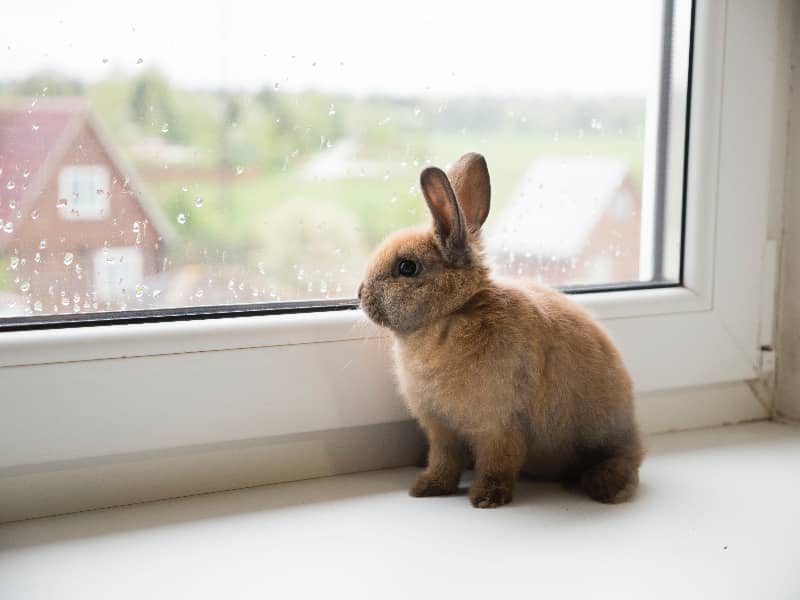
The correct handling of rabbits
One important thing to know is that rabbits are not cuddly animals. They generally do not like to be picked up or held. In fact, they can become very anxious about it. If you must pick your rabbit up, make sure you hold it securely and gently to stress it as little as possible.
Try to keep your interactions with your rabbit mainly at ground level. Sit down and let your rabbit come to you. This will help your rabbit learn to trust you, and it will become more likely over time that it will come to cuddle on its own.
Training and employment when keeping rabbits
Rabbits are intelligent animals and benefit from mental stimulation. You can train your rabbit to teach it tricks or to challenge it mentally and physically. This can be achieved through clicker training, agility or even simple games.
There are many resources online that can help you find appropriate exercises and games for your rabbit. Remember, however, that training should always be based on positive reinforcement and never on punishment or coercion.
The socialization of rabbits
Finally, you should know that rabbits are social animals and prefer to live in company. If you have only one rabbit, consider giving him a companion. Two rabbits can keep each other company, especially if you are not always there.
The Socialization rabbits can be a challenge, however, as they are very territorial animals. It's important that you educate yourself on the proper method for pairing rabbits and be willing to be patient and gentle. But the reward - two happy rabbits cuddling and playing together - is definitely worth it.
Living together with your rabbit
Now that you know the basics of keeping rabbits, it's time to turn your attention to living with your furry friend. Rabbits can be a wonderful addition to your life, but they can also present you with some challenges. As with any pet, it's important that you take the responsibility of your rabbit's care and well-being seriously.
It can also be helpful to share your experiences with other rabbit owners. There are many online forums and social media groups where rabbit lovers share their experiences and give advice. You can learn a lot and find support here.
Deal with rabbit problems
Even if you do everything right, sometimes problems can occur. Maybe your rabbit nibbles the furniture, digs in your potted plants, or has difficulty using the toilet. In such cases, it is important to remain calm and seek a solution rather than punishing the behavior.
Sometimes undesirable behaviors can be resolved through environmental changes, training, or medical treatments. In other cases, they could be a sign of boredom or stress. It is always a good idea to seek professional advice when you are confronted with behavior problems.
Rabbit husbandry-Care for older rabbits
Depending on breed and health, a rabbit can live 8 to 12 years. Older rabbits often have special needs and may be more susceptible to health problems. They might need special diets, more rest, or additional medical care.
It is important to have your rabbit examined regularly by a veterinarian and to watch for signs of illness or unwellness. However, with proper care and attention, older rabbits can live to a ripe old age and lead happy and fulfilling lives.
Love and devotion in keeping rabbits
Keeping a rabbit requires a lot of dedication and love. But the joy and happiness they bring to your life are more than worth the effort. A Pet rabbit to have is to have a friend for life.
You'll be amazed at how much your bond with your furry friend will develop once you learn about his needs and appreciate his unique personality. Whether you're a rabbit newbie or an experienced bunny, there are always new things to learn and discover in the wonderful world of rabbit keeping.
Author

-
Garden animal - A life with nature
Welcome to my animal blog! My name is Dirk and I am happy to take you on my journey through the fascinating world of animals and gardening.
Born 54 years ago, I have had an insatiable curiosity for the animal world around me since childhood. Although I have moved professionally in other industries, my true passion has always been animals and nature. It is remarkable how a small garden has become such an important part of my life.
Many of my fondest memories are associated with the animals that share our home. Whether it's the curious squirrels that scurry across the trees in the morning, the colorful variety of birds that visit our feeders, or the busy bees and butterflies that pollinate our flowers, every moment with them is invaluable to me.
This blog is my contribution to share my experiences, discoveries and insights with like-minded people. Here I will share stories of unforgettable encounters with animals, give tips on gardening and creating wildlife-friendly habitats, and take you on my journeys through nature.
Thank you so much for being here!
Cordial,
Dirk aka garden animal
Last posts
- 27. February 2024PetsVeganes Hundefutter – Grün und Gesund?
- 18. January 2024ChickensOregano für Hühner
- November 27, 2023HamsterDiurnal hamsters
- November 24, 2023HamsterHamster hammock

